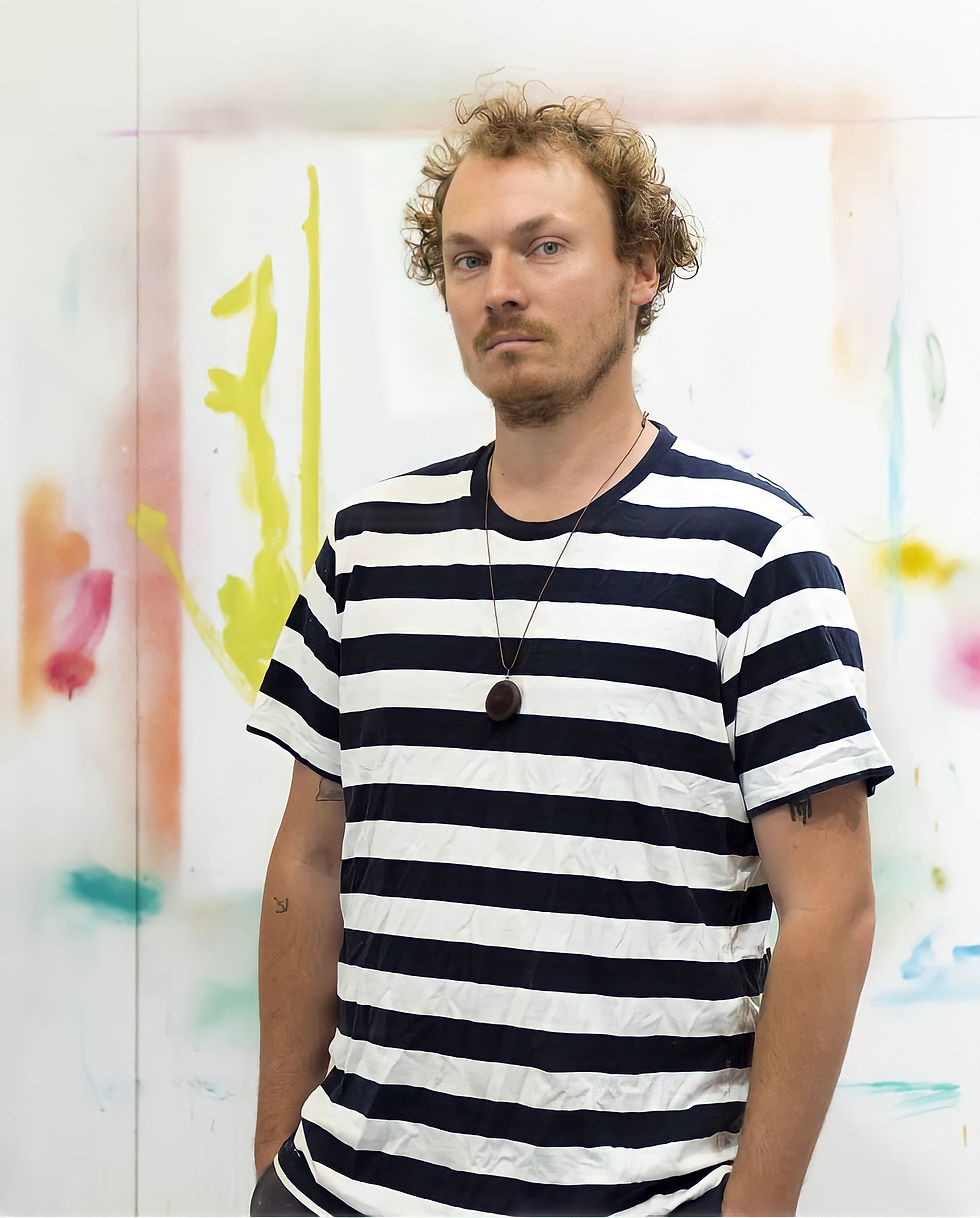AS IS | Daniel O'Toole
- ARV's Team
- Nov 7, 2021
- 4 min read
Artist
From: Sydney
Based in: Melbourne
We are so glad to interview wonderful Daniel O'Toole about his art story, sources of inspiration, some fascinating recommendations for those who are just starting their creative journey, and many more

A: Please, tell us a bit more about yourself. What brought you into art?
D: I was raised in a creative household, so I was lucky to be exposed to drawing and painting from a young age. My Mother is a skilled painter, and musician, she has dabbled in stained glass work, portraiture, piano, and violin, she used to work as a jazz singer, and is now learning Cello voraciously. So, I am quite similar to her in that I have an appetite for a range of creative outlets. My Father is a pilot and has flown planes for Qantas for 33 years, but he can also draw and write computer programs, does fine metalwork, and is a hobby mechanic, he also plays upright bass and guitar. So, creativity has been fairly embedded in my upbringing and I was always drawn to making things and playing music as well as drawing and painting.
A: What inspires you the most?
D: I am most inspired by nature, natural phenomena, light, water, color, and sound, but also music and other artists' work. There is a great ongoing conversation within the creative culture that I enjoy participating in, some of my favorite artists would be Robert Irwin, James Turrell, Anish Kapoor, Uta Barth, Saul Leiter, Richard Diebenkorn, and Rothko.
A: Do you have any specific rituals while working(creating)?
D: I like to start my day with a coffee and some drawing and imagining, playing with ideas, and trying to envision where my work is going and what new challenges I can sink my teeth into. These drawings have become quite architectural and intricate, blueprints for installation ideas and sculptural works.
In the studio, I like to listen to records and have a record player set up in my studio with a few crates of vinyl on hand. Apart from that I just get in the studio and get busy.
A: What would you recommend to someone who's new to art (rather artist or just an admirer), what to begin with?
D: I suppose the way I approached things was just to spend the time playing and experimenting but also copying the things I liked. I feel like learning to draw and studying the difference between what we imagine we see and true observation is a great skill to develop. Being a good draftsperson and having explored your influences through studies and transcriptions takes time but pays dividends. I feel like it is a rite of passage, to go through your favorite artists' work, one by one, and learn what it is you like about their ideas, and see what you add to the work when you interpret it. When you strip away all the copied bits then the part of yourself that's leftover is generally an intriguing self-discovery and gets you a step closer to realizing the true nature of your own work. So, then the question is not what do you want your work to be or look like, but why do you want to make art in the first place? What is the core element that needs to be expressed and for what reason?
A: Your top 3 adjectives related to the art?
D: Spatial, immersive, kinetic.
A: The best angle to look at art is from …?
D: Your own angle.

A: The perfect phrase to start any conversation about art is: .. ?
D: What does the work make you feel?
A: Must-read books to talk about art (or do we even need them)?
D: I suppose I have a few books that I have loved, like Saul Leiter's Early color', Anthony Woods 'Archive', some Richard Diebenkorn books, and books on James Turrell and the light and space movement. Recently I read Phillip Ball's 'Bright Earth' which is a pretty interesting history of color. However, it depends on your interest. Perhaps the book that influences your art the most is a novel or a history book...? Seek out the texts that inspire you regardless of their artistic merit or literal relevance to your current practice. The academic side of art is fascinating, but making art and living nourishing life isn't always entwined with academia.
A: If you could change one thing in the art world - what would it be?
D: I think it's a shame that most of the money made in the Art world happens in the secondary market and the profits are enjoyed by collectors instead of the artists. This is changing with the new NFT contracts and the 10% royalty payment back to the original artist is a great idea and should be common practice now, I think. I would like to see similar contracts and blockchain technology in place as a gallery standard so that it is commonplace for artists to be earning a passive income whenever a work of theirs is sold at auction. Why not have an NFT attached to all physical works sold in the gallery? It could become a new norm as social pressure to respect the artist's rights to a royalty payment increases.
A: Please, share your favorite quote (not necessarily related to art)?
D: I have so many, but I like this one: 'Life is like riding a bicycle. To keep your balance, you must keep moving.' - Albert Einstein
Thank you!
For more: visit




Comments